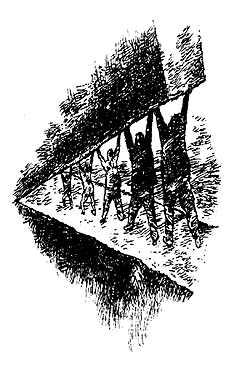 Following the unfortunate, but necessary, declaration of a state of emergency here, critical voices have been saying with some frequency that we need to monitor the state's actions as we go through this unprecedented situation. The suspension of fundamental rights means we need to think about the present and future of democratic Nepal. All this concern takes the form of calling upon civil society to stay alert to the dangers of unrestrained state power.
Following the unfortunate, but necessary, declaration of a state of emergency here, critical voices have been saying with some frequency that we need to monitor the state's actions as we go through this unprecedented situation. The suspension of fundamental rights means we need to think about the present and future of democratic Nepal. All this concern takes the form of calling upon civil society to stay alert to the dangers of unrestrained state power. The assumption in such calls is that there exists in Nepal a civil society that, while admittedly small, is still ready and willing to defend the interests of democracy. Amidst the images of poor government leadership, bickering political parties, the poverty and short-sightedness of Left politics and so on, civil society remains the unsullied arena upon which democracy now heavily relies. At a time of national urgency, civil society needs to rise to the occasion.
Perhaps reasons for its past inability lies with the usual suspects-political parties, state leaders, corruption, the short period of democratic experience, etc. But it is still unclear where exactly civil society is coming from today, and what direction it will take. As for the outlook on civil society's willingness and ability to fulfil its designated role, well, that is equally murky. Just consider civil society's history of defending democracy and the rights of people, and it is hard not to come up with questions about its own culpability in the events leading up, finally, to this emergency. It is difficult not to sceptical about the ability of our so-called civil society to function, at least its current form, as a force for democracy.
There are scores of instances of so-called civil society being simply missing from places it should have been most active in. I will only point to a few: Civil society had little to say when famine regularly hit Humla and Jumla. Where were the street protests on behalf of fellow Nepalis having to suffer the annual outrage of not having their basic needs tended to by the state? We never objected to television clips of politicians grandly dispensing foodgrains to the respectful namastes of recipients-food that was not a gift, but a right that had been withheld from them. We never demanded apologies from our politicians then. And why did it need an uproar in the British press for Nepali politicians to finally start pushing for equal pensions for ex-British army Gurkhas? More generally, feminists have not pushed for the rights of dalits, nor have janajati activists called for day-care provisions for women working in factories. Human rights activists have not and do not demand that rice prices be stabilised for poor farmers.
We take the moral high ground in our isolated tundikhels, and sit in our little zones of "activism", "issues", and "projects". And in doing so, we have made ourselves individually and collectively vulnerable to the state and the usual suspects. We did not challenge outrages that we should have protested against-not because they directly affect us, not because they happen to fall under the umbrella of the specific agency we happen to be working for, not because these are issues that we are particularly interested in, and not because we will profit in some material or other manner. We should have spoken up because these are, quite simply, injustices that affect fellow Nepalis.
It is not surprising then that so many offences were repeated, in similar form or in different guises, in other places, against other people. It is not far-fetched to argue that had we stood up for the rights of Humlis or rice farmers, perhaps the Maoist's overtures might not have appealed to so many.
And now, because we did not speak out demanding that the rights of our fellow citizens be secured, we find that we ourselves are in danger of losing our rights. And to whom will we turn for an outcry of rage on our behalf? This particular historical moment is important on so many levels, and if we are lucky, it will go down as a time in which those of us who constitute civil society sat down and did some serious, honest soul-searching. Perhaps such an activity will move us away from the narrow confines of "civil society" to the other spaces of our own democratic potential.
Seira Tamang is a student of political science.



